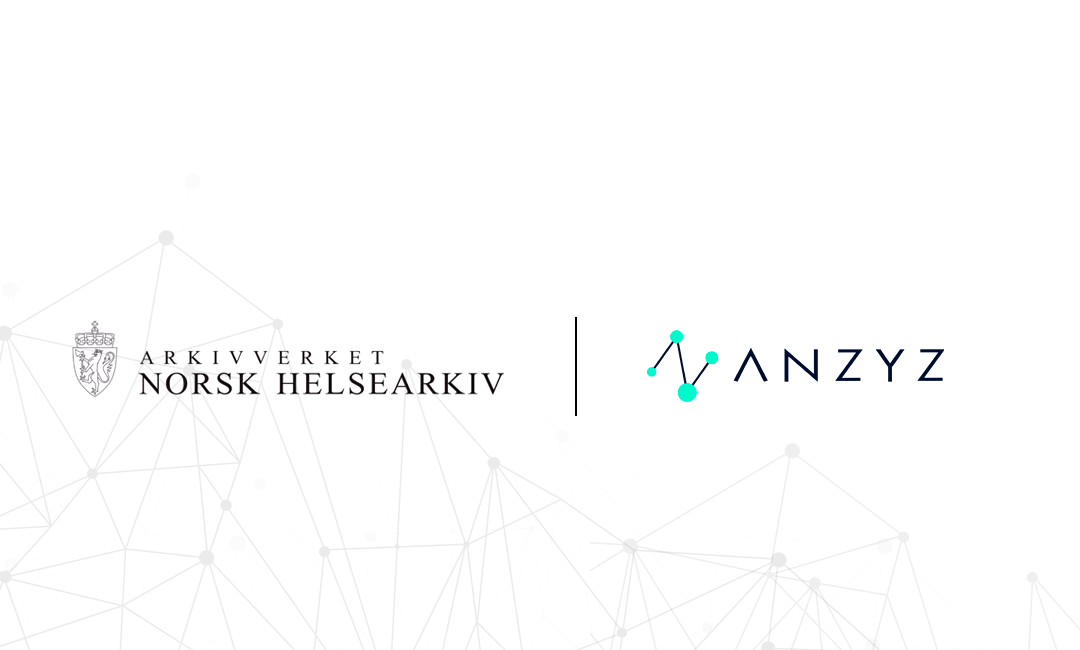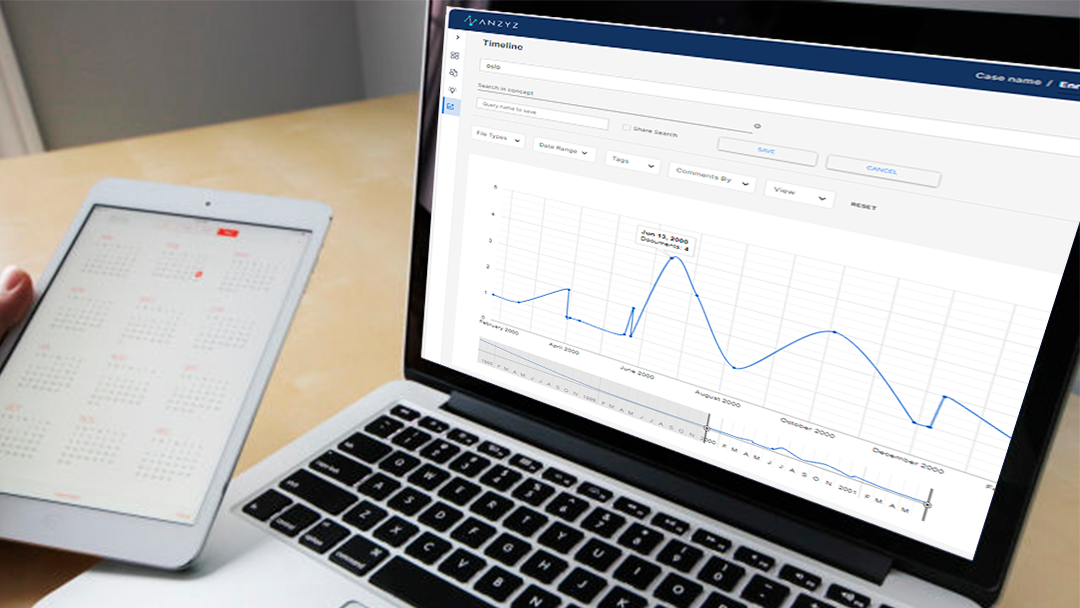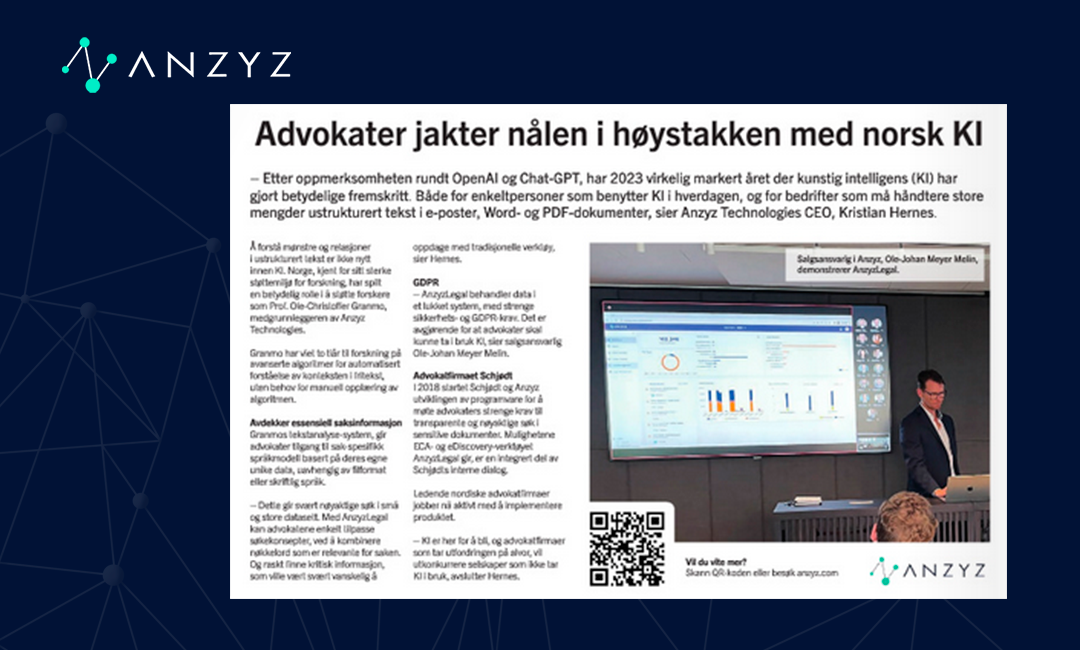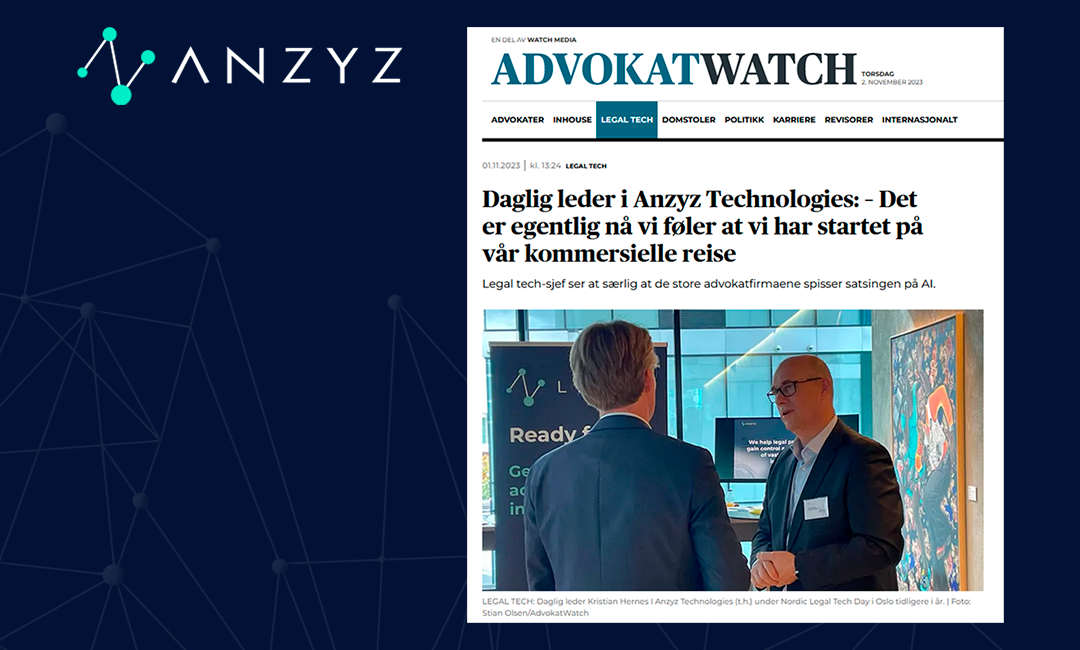
Norwegian Health Archives and Anzyz with breakthroughs for health research
– This is a breakthrough, says director Bjørn Børresen of the Norwegian Health Archive (Arkivverket) at Tynset. He is referring to a successful pilot, where Anzyz’ NLP (Natural Language Processing) research tool, has been used to understand the content of large amounts of unstructured journal information. It provides completely new opportunities for health research, he says.
Anzyz has provided the core technology – Anzyz CCL™ – for the proof-of-concept.
– The tool, which is now available, has been developed through an R&D Innovation project, says Børresen. – We’ve been working for a year with Anzyz, where they’ve had their data scientists involved, and we have had our specialists in health research and IT. It has been a learning experience, says Børresen enthusiastically.
In Norway, there are over 150 kilometers of physical patient records to be submitted and stored by the Norwegian Health Archives. In addition, electronic records should also be included. The information is stored in the health archive register, which is a new, central health register based on the patient archives from the specialist health service. The register contains enormous amounts of medical record information that can be used for research purposes to, among other things, develop new medicines, or understand why we have more cancer now than before.
– It is impossible for a researcher to get an overview of the contents of thousands of journals. The tool that has now been developed gives us this genuine opportunity and opens up an exciting future for health research. We are talking about a new era, says Børresen.
CEO of Anzyz, Kristian Hernes, says that the project has been exciting, and he is happy that the collaboration with the Norwegian Health Archives continues.
– By using our genuine self-learning Artificial Intelligence, we have together with the Norwegian Health Archives managed to achieve a categorization of up to 99% accuracy. Our goal is for us to score 95% and higher in all variables and categories. I am confident we can do that. I am of course satisfied that together with the Norwegian Health Archives we have managed to develop a tool that can have a national impact, even global, in the way we handle diseases in the future, Hernes concludes.



